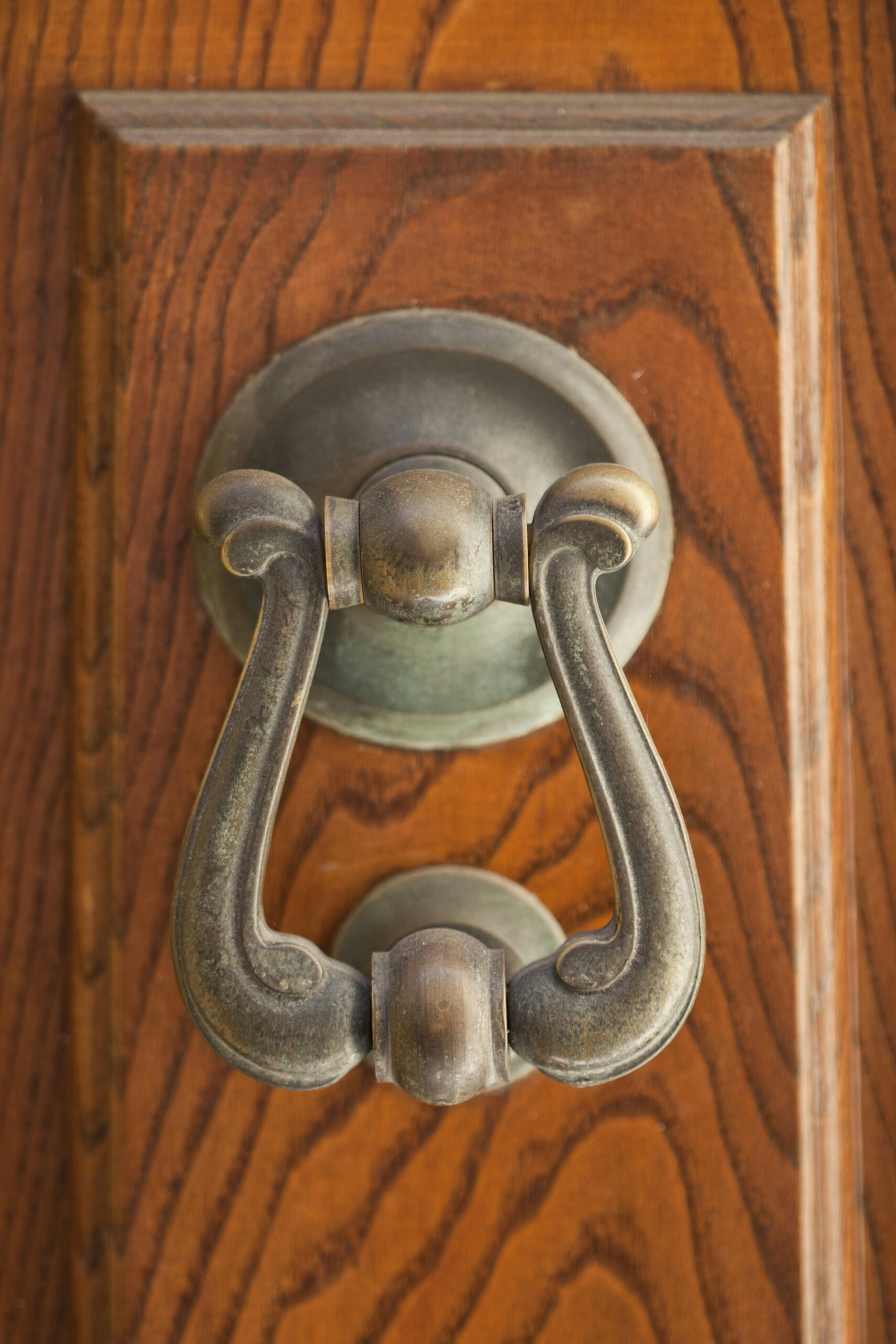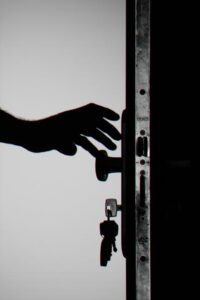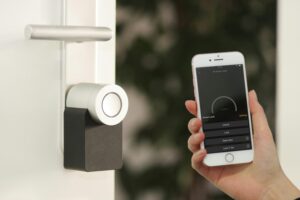In a world where the front door stands as the steadfast guardian of our personal sanctuaries, the choice of lock is far more than a mere detail-it is the silent sentinel that defines our sense of safety. From the sleek simplicity of traditional deadbolts to the cutting-edge innovation of smart locks, the landscape of residential security is as diverse as it is vital. This article embarks on a journey through the most secure lock types available for residential doors, unraveling the intricacies that transform ordinary entryways into formidable barriers against intrusion. Whether you’re a homeowner seeking peace of mind or a curious enthusiast of home security, understanding these lock mechanisms is the key to unlocking true protection.
Table of Contents
- Understanding the Key Features of High Security Residential Locks
- Exploring Deadbolts and Their Superior Resistance to Forced Entry
- Smart Locks and Electronic Security Enhancements for Modern Homes
- Choosing Locks Based on Door Material and Placement
- Expert Recommendations for Integrating Multiple Locking Systems
- Q&A
- Future Outlook
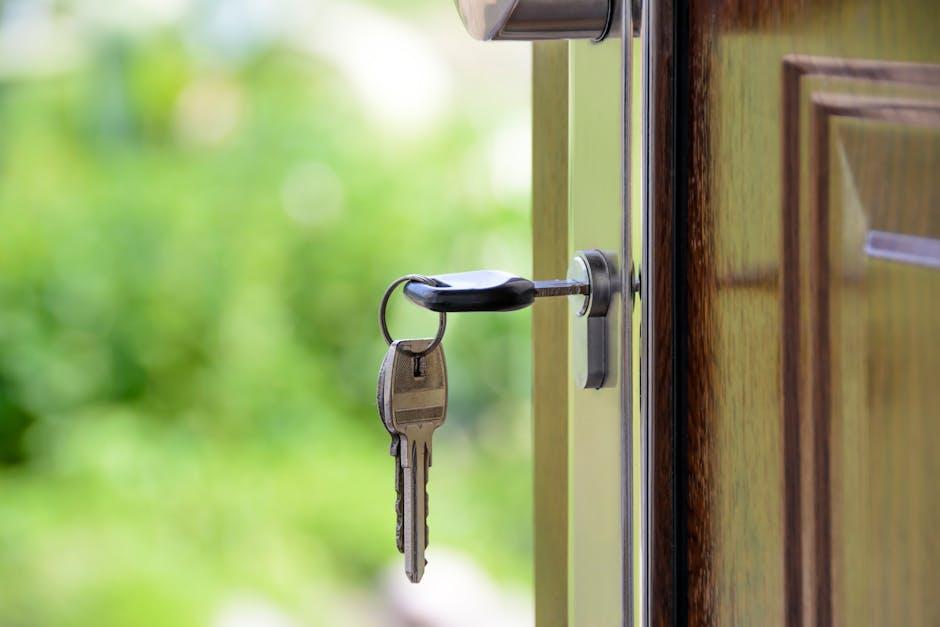
Understanding the Key Features of High Security Residential Locks
When choosing a lock for your home, security, durability, and advanced technology are essential characteristics that elevate a lock from standard to high-security. High security residential locks typically feature reinforced materials such as hardened steel bolts and anti-drill plates, designed to withstand physical attacks like drilling, prying, or hammering. Additionally, these locks implement complex keyways and patented key systems which make unauthorized duplication virtually impossible. These features act as powerful deterrents, not only preventing intrusion but also discouraging opportunistic theft.
Beyond mechanical strength, modern high security locks often integrate smart technology, increasing both convenience and protection. Features such as biometric access, encrypted digital keypads, and remote locking capabilities add layers of control and flexibility for homeowners. Below is a simple overview of key features found in top-tier residential locks:
| Feature | Benefit |
|---|---|
| Hardened Steel Bolts | Resist cutting and physical force |
| Restricted Keyways | Prevent unauthorized key duplication |
| Anti-pick Mechanisms | Block lock-picking attempts |
| Smart Lock Integration | Enable remote monitoring and control |
| Biometric Verification | Offer keyless, highly secure entry |
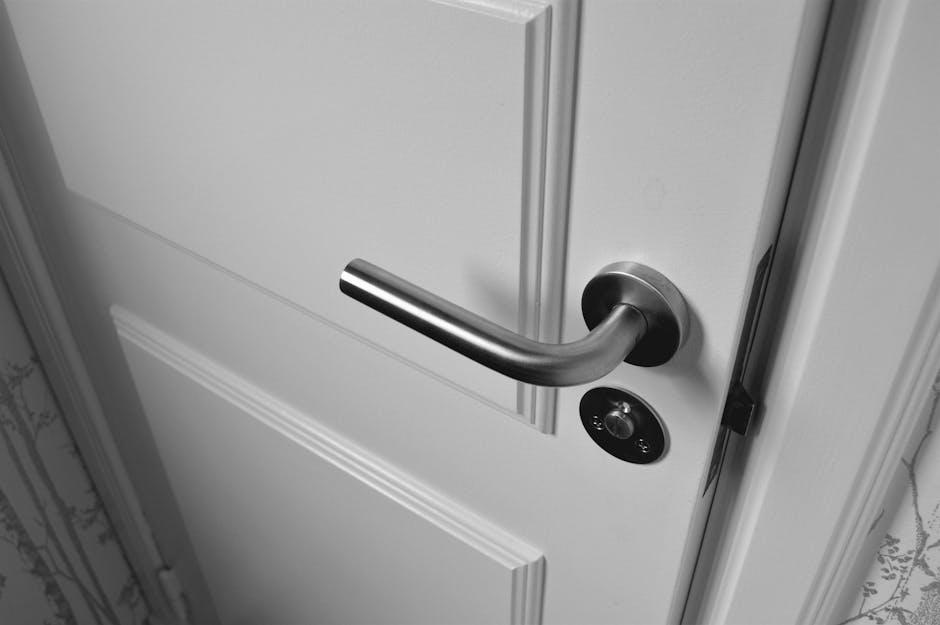
Exploring Deadbolts and Their Superior Resistance to Forced Entry
When it comes to securing your home, deadbolts stand out for their unparalleled strength and reliability. Unlike spring latches, deadbolts extend a solid steel bolt into the door frame, creating a barrier that is significantly harder to bypass. This mechanism ensures that forced entry techniques like kick-ins or prying attacks require much more effort and specialized tools. Additionally, many deadbolts offer anti-drill, anti-pick, and bump-resistant features, making it far less likely for intruders to manipulate the lock without visible damage.
Choosing the right deadbolt involves understanding what makes them superior:
- Single-cylinder deadbolts – easy to operate but best used where a key is not needed on the inside.
- Double-cylinder deadbolts – require a key on both sides, enhancing security, especially for doors with windows.
- High-security models – built with reinforced plates and hardened bolts to withstand brute force.
| Type | Resistance to Forced Entry | Ideal Use |
|---|---|---|
| Standard Single-cylinder | Medium | Interior doors, low-risk areas |
| Double-cylinder | High | Doors with glass panels |
| High-Security Deadbolt | Very High | Main entrances, high-risk areas |
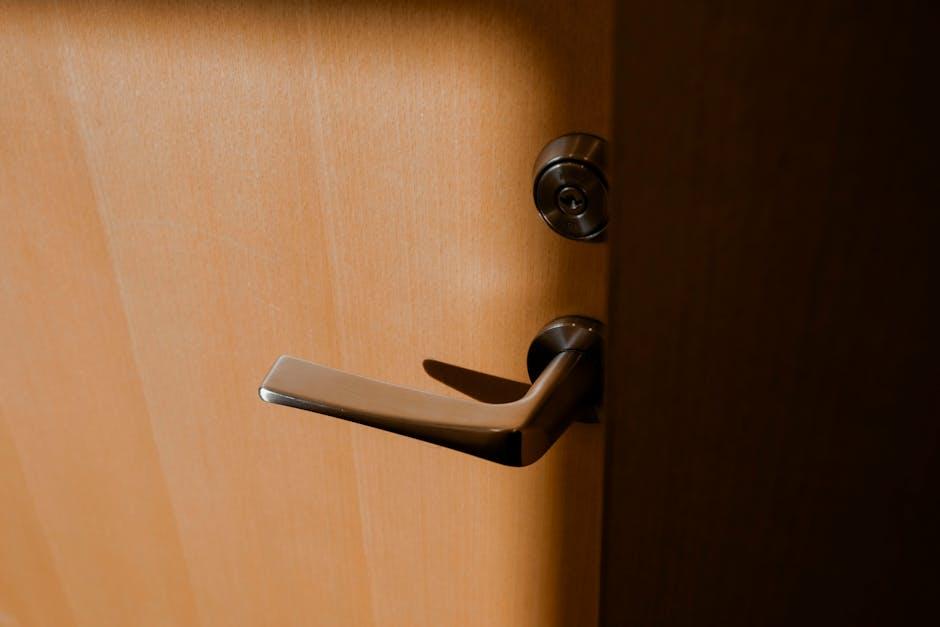
Smart Locks and Electronic Security Enhancements for Modern Homes
Incorporating smart locks into your home security system significantly elevates protection while adding convenience. These locks offer features such as remote access control, real-time notifications, and integration with home automation systems. Homeowners benefit from the ability to grant temporary access to guests or service personnel without the need for physical keys, eliminating the risk of unauthorized duplication. Additionally, many smart locks come equipped with encrypted technology to prevent hacking attempts, ensuring that your home’s entry points remain secure against cyber threats.
Key advantages of smart locks include:
- Remote locking and unlocking: Manage your door locks from anywhere using a smartphone app.
- Activity monitoring: Receive instant alerts when doors are opened or left unlocked.
- Biometric options: Fingerprint recognition enhances security by limiting access strictly to authorized users.
- Integration capabilities: Sync with security cameras, alarm systems, and voice assistants for a holistic security ecosystem.
| Lock Type | Security Feature | Best Use Case |
|---|---|---|
| Wi-Fi Smart Lock | Remote access + real-time alerts | Families with frequent visitors |
| Biometric Lock | Fingerprint recognition | Homes needing high-level user authentication |
| Bluetooth Lock | Proximity unlocking | Tech-savvy users seeking hands-free entry |
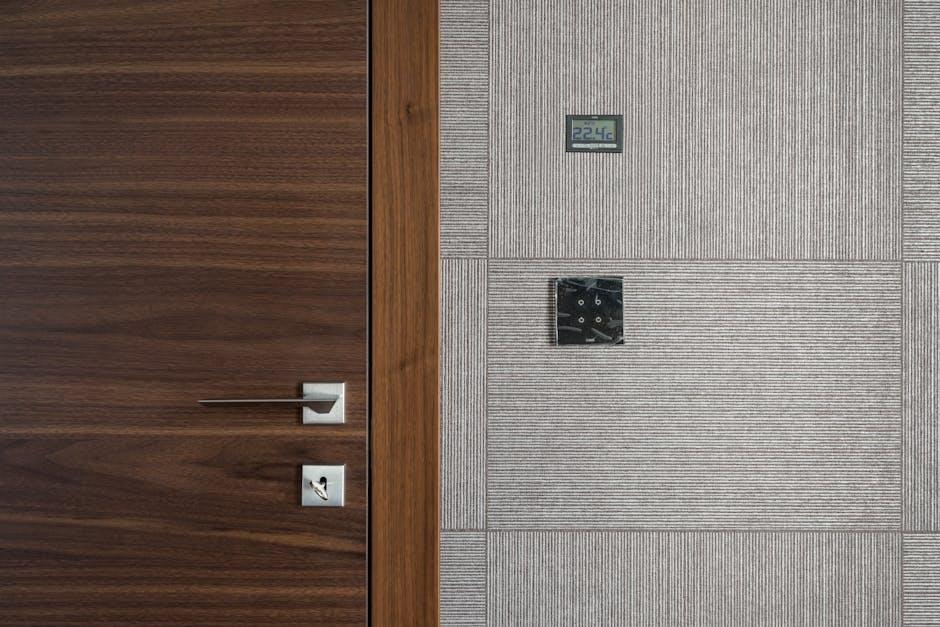
Choosing Locks Based on Door Material and Placement
When selecting a lock, it’s essential to consider the material of your door, as each material demands a lock that can complement its strength and durability. For solid wood doors, robust deadbolt locks are ideal, offering a tight grip into the door frame. On the other hand, metal doors benefit most from high-quality electronic or keyed lever locks that resist tampering. For composite or fiberglass doors, choose locks specifically designed to work with their unique thickness and structure, avoiding anything too bulky that could damage the door.
Placement plays an equally important role. Front doors usually require the highest security lock, often a combination of a deadbolt and a reinforced strike plate. Interior doors, depending on their purpose, can have simpler lock systems like privacy locks or knob locks. Sliding or patio doors typically need special locks like surface-mounted locks or auxiliary locks to prevent lifting or forced entry. Here’s a quick reference table to match door types and optimal lock options:
| Door Material | Best Lock Type | Recommended Placement |
|---|---|---|
| Solid Wood | Deadbolt Lock | Main entrance, Front doors |
| Metal | Keyed Lever Lock / Electronic Lock | Main entrance, Security gates |
| Fiberglass / Composite | Multipoint Lock System | Main entrance, Patio doors |
| Sliding / Patio | Surface-mounted & Auxiliary Locks | Patio, Balcony doors |
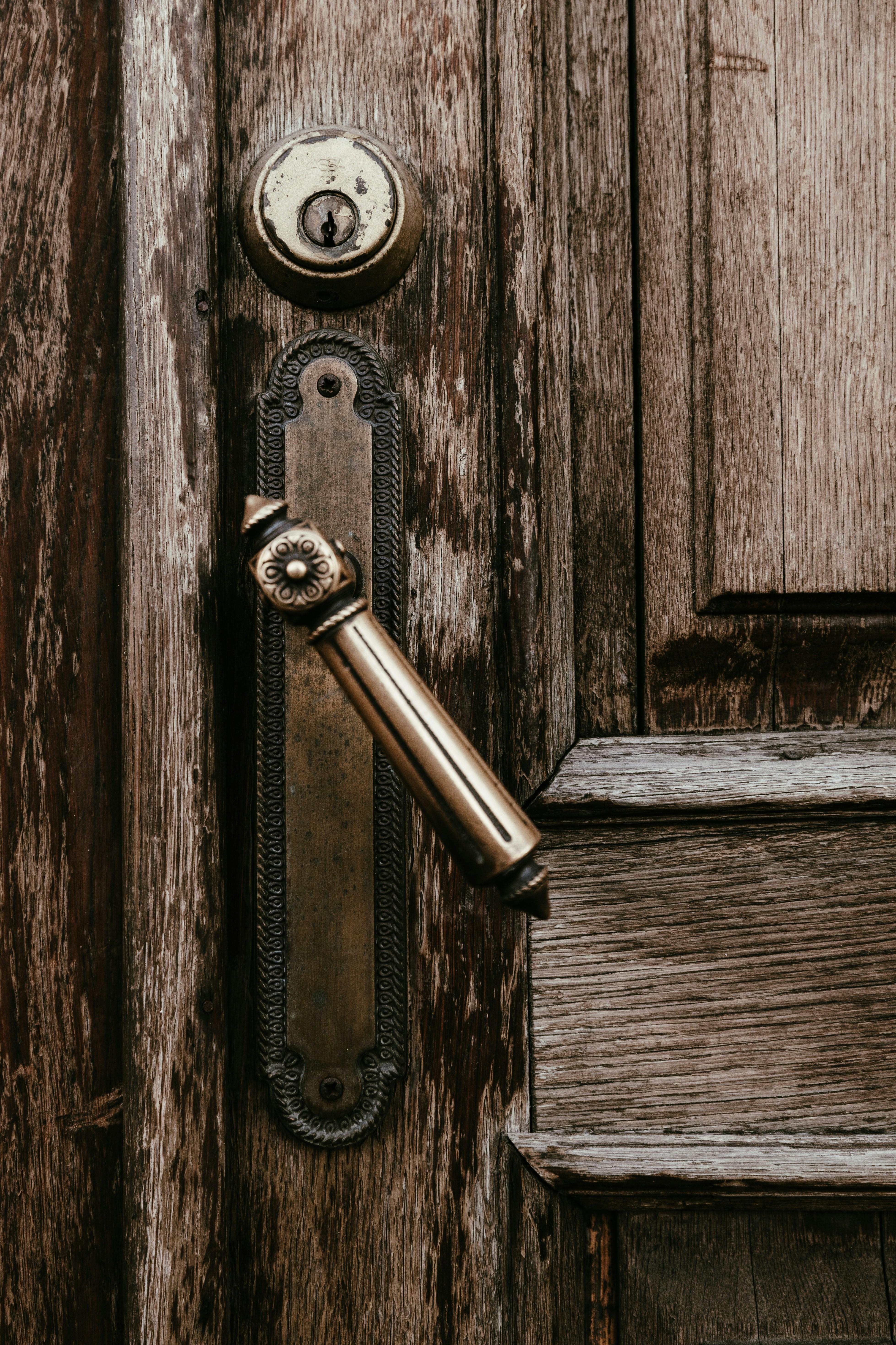
Expert Recommendations for Integrating Multiple Locking Systems
When blending multiple locking mechanisms, it’s crucial to prioritize compatibility and seamless operation to avoid diminishing overall security. Experts advise pairing a robust deadbolt with a smart lock or keypad system, as this combination offers both mechanical strength and convenient access control. Pay close attention to the door’s material and frame integrity, ensuring that all locks are properly installed with reinforced strike plates and high-quality screws for maximum resistance against forced entry. Regular maintenance and testing of each lock’s function is essential to prevent failures that might arise when locks are integrated.
Consider the following best practices when combining different lock types:
- Layer security: Use locks that complement each other’s weaknesses, such as a keyless entry lock paired with a traditional deadbolt.
- Consistent keying: If multiple keyed locks are used, having them keyed alike enhances convenience without sacrificing security.
- Smart integration: Synchronize smart locks with home security systems for centralized control and real-time alerts.
- Emergency access: Maintain a reliable manual override-never rely solely on electronics.
| Lock Type | Best Combination | Security Benefit |
|---|---|---|
| Deadbolt | Smart lock | Mechanical strength + remote access |
| Keypad lock | Reinforced strike plate | Keyless convenience + forced entry resistance |
| Biometric lock | Emergency mechanical key | Advanced authentication + fail-safe access |
Q&A
Q&A: The Most Secure Lock Types for Residential Doors
Q1: Why is choosing the right lock important for residential security?
A: Your front door is the first line of defense against intruders. A strong, reliable lock not only deters break-ins but also gives you peace of mind knowing your home and loved ones are protected. Choosing the right lock can make all the difference between a secure sanctuary and an easy target.
Q2: What is a deadbolt lock, and why is it considered secure?
A: A deadbolt lock operates with a solid metal bolt that slides deep into the door frame, making it much harder to force open compared to spring locks. Single-cylinder deadbolts, powered by a key from the outside and a thumb turn inside, are widely trusted for their durability and resistance to picking and kicking.
Q3: How do smart locks compare to traditional deadbolts in terms of security?
A: Smart locks bring high-tech convenience by allowing keyless entry via codes, smartphones, or biometrics. Many smart locks have robust encryption and alert systems that enhance security, but their reliance on technology means they can be vulnerable to hacking or power failures. Combining smart locks with sturdy mechanical locks offers the best of both worlds.
Q4: What makes a mortise lock a strong choice for residential doors?
A: Mortise locks fit into a pocket cut inside the door, making them inherently difficult to tamper with. They often feature complex internal mechanisms and are made from heavy-duty materials, offering enhanced resistance against forced entry. Their aesthetic versatility also suits a wide range of home styles.
Q5: Are chain locks or slide bolts effective for home security?
A: Chain locks and slide bolts provide an extra layer of security by allowing partial door opening, but they should never be the primary locking mechanism. They are relatively easy to break or bypass and are best used as secondary devices to supplement a robust main lock.
Q6: What role do lock certifications and grades play in choosing a secure lock?
A: Independent organizations like ANSI (American National Standards Institute) grade locks based on their durability and resistance to attacks. Grade 1 is the highest and indicates professional-level security, often recommended for residential use. Checking for certifications helps ensure you select a lock tested for real-world resilience.
Q7: How important is professional installation in maximizing lock security?
A: Even the best lock can fail if installed improperly. A professional locksmith ensures the lock is fitted precisely, reinforcing weak door frames and aligning strike plates correctly. Professional installation minimizes vulnerabilities, maximizing the lock’s protective potential.
Q8: Can combining different lock types improve home security?
A: Absolutely. Layering security-such as using a Grade 1 deadbolt alongside a smart lock or mortise lock-creates multiple barriers against intruders. This “defense in depth” approach makes unauthorized entry significantly more challenging.
Q9: What should homeowners consider beyond just the lock type?
A: The lock is one piece of the puzzle. Homeowners should also invest in solid door materials, reinforced frames, security cameras, and good lighting. A comprehensive security strategy outshines any single lock choice.
This creative Q&A lays out the essentials and nuances of residential door locks, helping readers make informed decisions without jargon or sales pressure-just straightforward, useful insights.
Future Outlook
In the end, the strength of your home’s security lies not just in the lock you choose, but in the confidence it brings. Whether you favor the enduring reliability of a deadbolt, the high-tech precision of a smart lock, or the time-tested robustness of a mortise lock, selecting the right lock is about balancing protection, convenience, and peace of mind. By understanding the strengths and limitations of each lock type, you’re better equipped to make a choice that fortifies your sanctuary against the unexpected. After all, the most secure lock is one that fits your home and lifestyle-and keeps your doorstep as safe as the memories inside.


